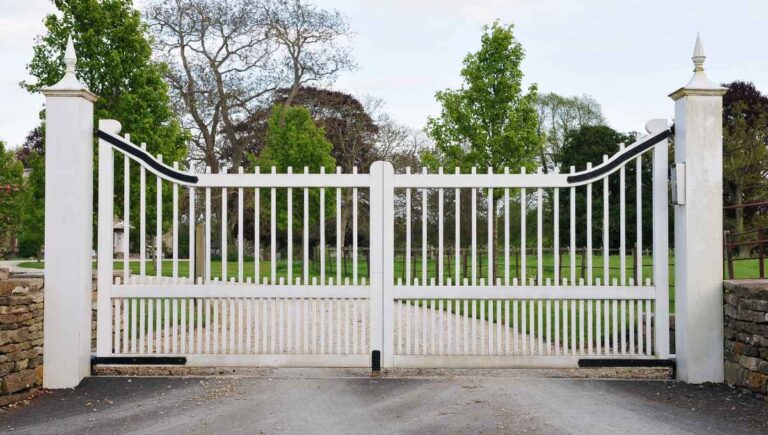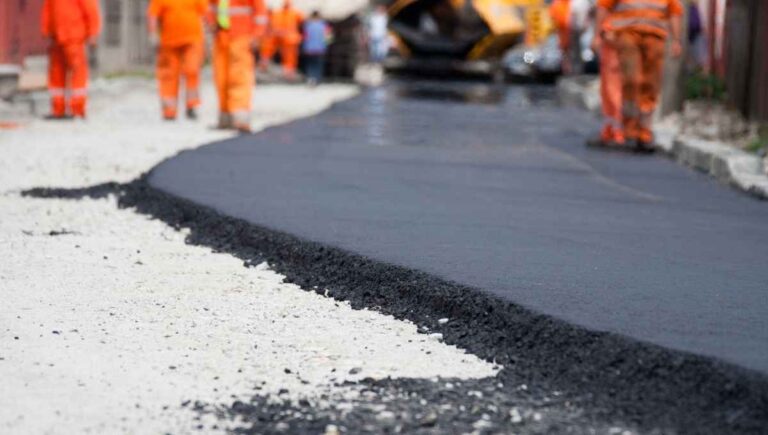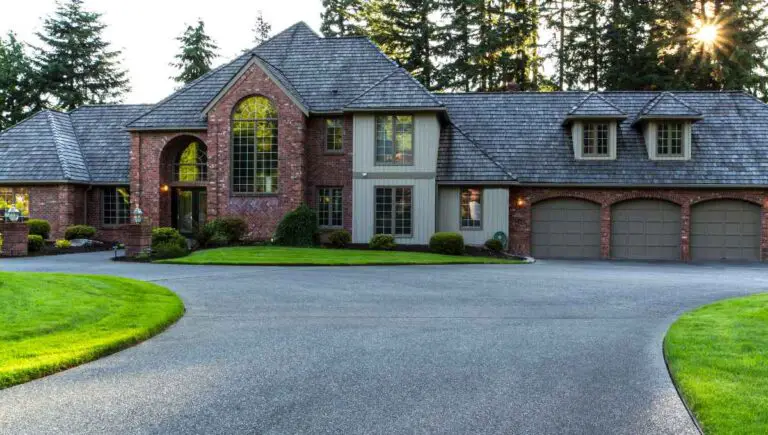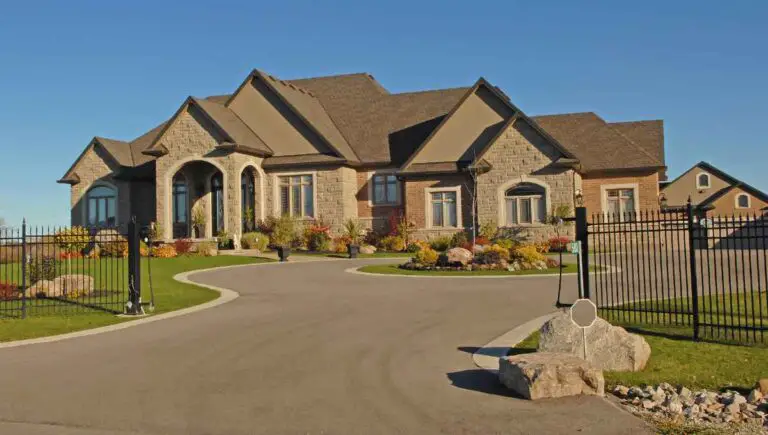Can I Put a Driveway on an Easement? (Check for This First)
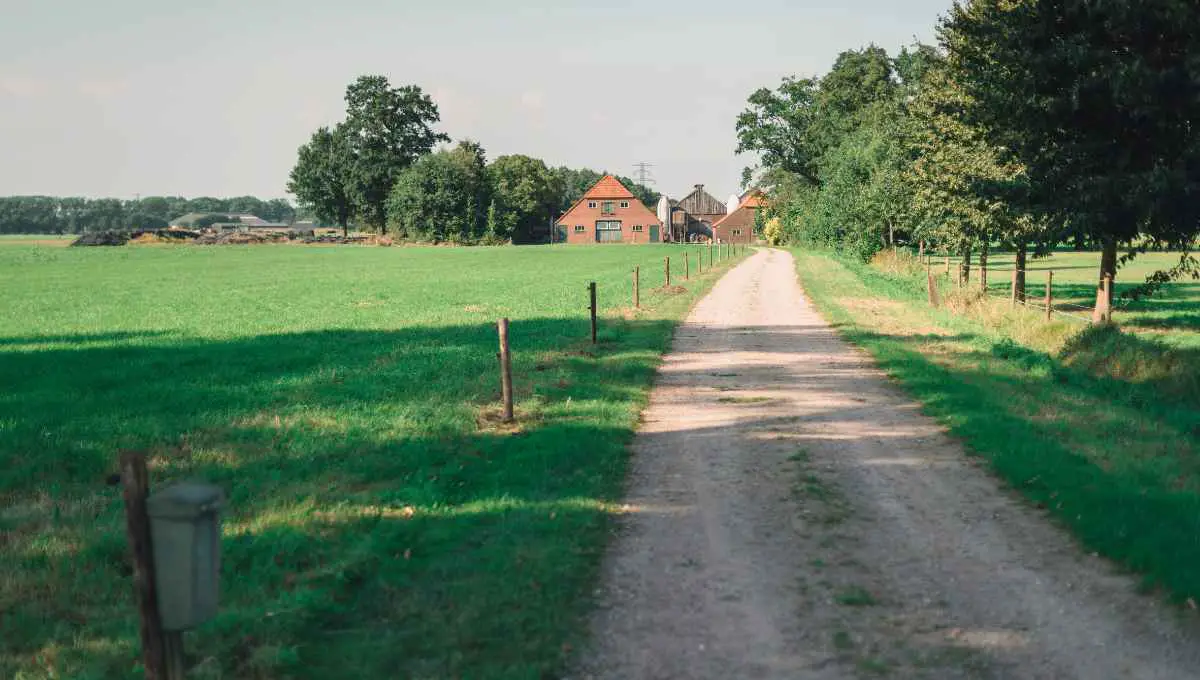
So, you’re sick of your current driveway. You should just be able to build a driveway, but your property has an easement on it, which complicates things. The first thing you ask is, can I put a driveway on an easement?
As long as you’re not blocking the easement agreement, you should be able to put a new driveway on an existing easement. Make sure to file all necessary paperwork and inform necessary parties of your plans before building.
Easements don’t have to be complicated endeavors. So before you decide for sure if and how you’re going to go about building a driveway on your easement, let’s chat a bit about the best ways to do so without breaking your easement agreement!
This post contains affiliate links from Amazon and other stores. This means Yard Blogger may earn a commission if you make a purchase using any of our links. Please refer to our full affiliate disclosure policy for full details.
Here’s a Quick Pro Tip!
Try one of these great options if you’re trying to make your home and land more aesthetically pleasing. You can build or place any of these without compromising your easement:
1. Gazebo – Give yourself some shade and get a property value upgrade simultaneously!
2. Shed – This is just what you need if you need space to store your lawn mower or other outdoor things!
3. Raised Garden – Who doesn’t like fresh fruit and veggies straight from their own garden?
A Quick Explanation of Easements
If you have an easement, you may already be familiar with how they work. However, for those left scratching their heads wondering how easements work, we’ve got you covered! After all, if you want to split a driveway, build a driveway on an easement, and more, you need to know how they work!
An easement is an agreement between two parties, typically landowners and/or a utility company, allowing one party to access the other’s land to reach their own property.
This may be one landowner allowing another to build a driveway in order to reach their property, or it may be allowing a utility company to access their utility poles by way of private property. Either way, easements are important to ensure fair and proper use of private property.
Easements are designed to protect the lawn owner in cases where they must allow someone else access to their private land. These easements outline exactly what the visiting party is allowed to do while on the easement.
Easements Can Vary By State
If you are concerned about whether or not you have an active easement on your property or if you are looking to purchase a property that comes with an easement agreement, we highly recommend you check your state laws.
While easements are generally the same nationwide, certain states or counties may have specific rules for their lands that we haven’t mentioned. If you’re unsure, contact your lawyer before agreeing.
If you want to put a driveway on an existing easement, make sure you read over the easement agreement thoroughly before building, as each agreement is a bit different. However, as long as your new driveway is not blocking someone from being able to use the easement as designed, there should be no problem with building a driveway.
Easements and Your Neighbors
Now that we’ve established what easements are and who is affected by them let’s talk about neighbors. Many easements are established so landowners can access their property via their neighbor’s yard or driveway. It can be unfortunate, but sometimes an easement is the only option.
If you have a bad neighbor, you may wonder, do I have to allow my neighbor access to my property? If you have a binding easement with your neighbor to allow them to access their property via yours, the answer is yes.
Remember, however, that an easement outlines exactly what part of your property your neighbor has access to and why. Your neighbor can’t just go wherever they want on your property because of an easement. They must stick to the land, usually a driveway, that falls under the easement.
What About Compensation?
If your neighbor has been overstepping their boundaries and using the easement as an excuse, you may want to consider adding a compensation clause the next time you renew the easement.
Adding a compensation clause to your easement can be done easily but requires an appraisal to determine the worth of the property and easement. This may be advantageous for the homeowner, as having an easement already increases a property’s value in most cases.
Add to that compensation from the parties that use the easement, and you just may get yourself a tidy sum for the duration of the easement agreement! If nothing else, it may make your neighbor rethink your agreement and may end their use of your property!
Ending an Easement
If you are unhappy with the current easement on your property, you can petition to terminate it. To do so, you will want to contact a lawyer, preferably one familiar with land disputes and easements.
You can only terminate an easement if you are the one with the rights to it. However, there are other ways that easements can end. For example, they can expire if not renewed properly, be terminated if there is a lack of necessity, or be released by other parties in the agreement.
Once an easement agreement has ended, the parties who did not own the land, to begin with, no longer have any rights to access the land used in the easement. In fact, if they still try to do so, they can be charged with trespassing.
However, an easement typically cannot be terminated if those who used the easement to get to their property do not have another way to access their property. Legally speaking, any land owner must be able to access their property, and unfortunately, this sometimes means easements can’t be terminated, even if one party wishes it were so.
Property Owners and Their Easements
If you own the property your easement is on, you’ve probably wondered if you can block an easement. Maybe your neighbors are overstepping, or the constant use of your land is hurting your driveway or property.
Either way, as the property owner, you still do not have the right to block off an easement that someone has the legal right to use. Whether this is a private easement between two parties or a utility easement between you and a company, you cannot block the use of your land.
This may mean you can’t build on the easement as well. While it is sometimes possible to build a driveway or structure on an easement, you must still allow those parties in the easement agreement to reach their property as per the agreement.
Building on an Easement
If you are part of an easement agreement, but you do not own the property, just using the easement, you don’t have many rights beyond using the easement when necessary. However, if you’re the landowner, you can do almost anything you want as long as you don’t block the easement.
For example, you can build a fence on the side of the easement if you’re the landowner. The fence just can’t block the others from being able to access their property via your easement agreement.
You can also add a driveway, or any other buildings you wish, as long as they leave the easement way intact. In fact, you may want to build a privacy fence to surround the easement to discourage improper use of your easement!
Easement Rights
There are many types of easements, but for clarity, we have mostly been discussing right-of-way easements, as they are most common and most likely to be misused by the involved parties.
If you’ve recently become part of an easement agreement, you probably have a number of questions. One of the most pressing is, who can claim easement rights? After all, it’s not like anyone can just come through your property because there’s an easement, right?
Your easement agreement will lay out who has the right to use the easement in question. It will be part of the deed to the land for the party who owns the easement, as well as the individuals or companies who need to use the easement to get to their property.
No one else has the legal right to use your land. If you are unsure of who exactly has the right to use your easement, contact a professional for guidance.
Make Your Easement What You Want
The next thing you’re probably wondering is, can I build on my own easement? We’ve already discussed this a bit, but the short answer is, yes, you can, as long as your buildings don’t interfere with any other party’s use of the easement.
You have the right to build as you wish on your own property. For example, maybe you want to build a new garage or add a gazebo to build property value. Of course, you can do so, but you must leave the easement accessible.
However, for peace of mind, you may want to avoid building on the easement at all. Check your agreement over carefully to determine if you have lost the right to build on the land before starting any projects, as each easement is different.
You might also enjoy our post on Can a Utility Company Block Your Driveway?
Final Thoughts
It can be frustrating if you feel you’re not allowed to access part of your property due to an easement agreement. However, you do still have options. As long as you follow your easements contractual obligation and don’t block the access, you can do what you want!


